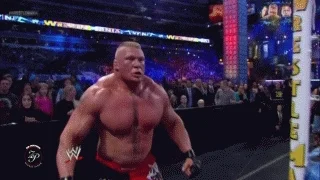One of the culture writers I’ve followed over the years, Freddie deBoer, wrote a thing today on how the larger sense of meaninglessness in our culture leads people to get WAY too wrapped up in their fandoms (in sports, TV shows, comics, etc.), which in turn leads to all sorts of horrible behavior online. I couldn’t help seeing some parts of this forum in his description.
The post is subscriber-only, so I don’t want to put the whole thing here, but these parts–especially on NBA fandom–sounded eerily familiar:
This collapse in meaning has left people so at sea that they have attempted to find transcendent meaning in places that can’t possibly produce it. Fearing that they are nothing, they become “Marvel movie fan” or “Reddit superuser” or “zealous advocate for analytics in baseball” or “Taylor Swift stan.” In other words, they attach their sense of self to the kinds of personal affinities and allegiances that, while fun and an important part of life, can never really provide the meaning they’re looking for.
…If you have a healthy sense of self and identity that goes beyond what you like and you meet someone who doesn’t like what you like, hey, whatever. That’s taste. But if your culture has systematically denied you meaning to the point where you start insisting that loving the Marvel movies is who you are , and someone comes along and calls them childish commodities, then you can’t just live with that disagreement. You have to destroy the person who voices it. Because they’re not just criticizing something you like, they’re undermining your very self.
…So we find yourself in a world where if [an NBA fan says] “they’re really playing hard today,” some self-satisfied Enlightened Fan dipshit is going to say, “uh, source for this claim???” It sucks. But this condition exists, I suspect, because for that dipshit the performance of superior expertise and enlightenment provokes a certain kind of order: I don’t know what I am, I don’t know if my life is enviable, I don’t feel confident in my day-to-day decisions, but by God, I will be smarter than the average NBA fan. I will be that, if nothing else. This is no fun if you think that watching basketball should be fun and casual and that the way you enjoy sports shouldn’t be taken as some sort of existential marker of your being. But I also suspect that it’s no good for that NBA hipster, either; I suspect that, in the bigger picture, it’s doing very little of good for him emotionally.
The collapse of meaning has led to a vast amount of emotional overinvestment , is how I would sum this all up. Things that should not be load-bearing elements of personality are being given that task, awkwardly. The result is people defending their tastes as their selves and, in so doing, turning every shared cultural space into a constantly-boiling cauldron of hurt feelings and recrimination. …I really do think that in a certain direct sense the problem with the internet is that people care too much about things and it would be better for everybody if we all chilled out.
